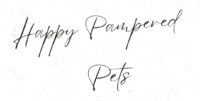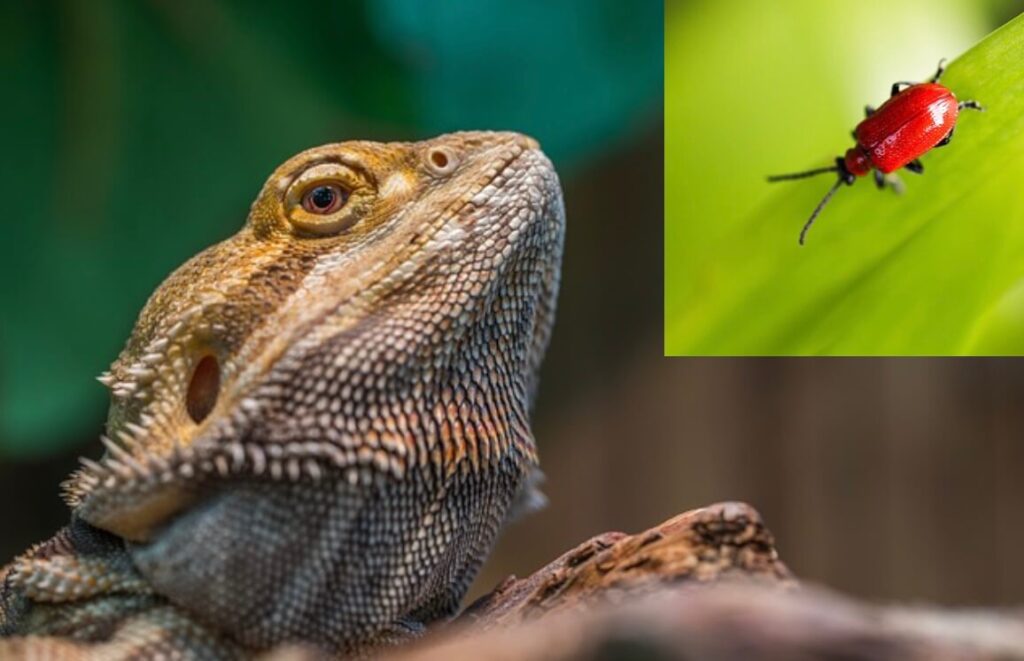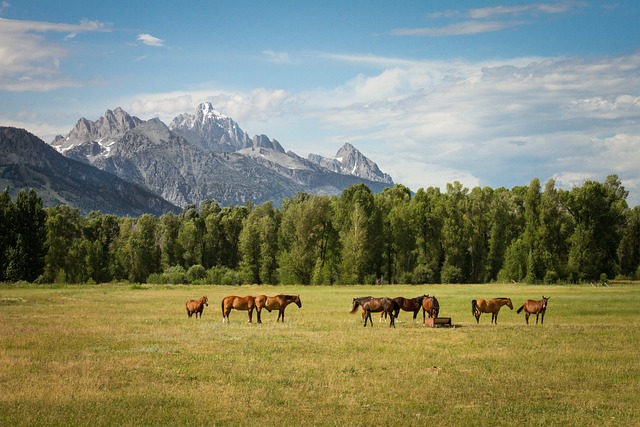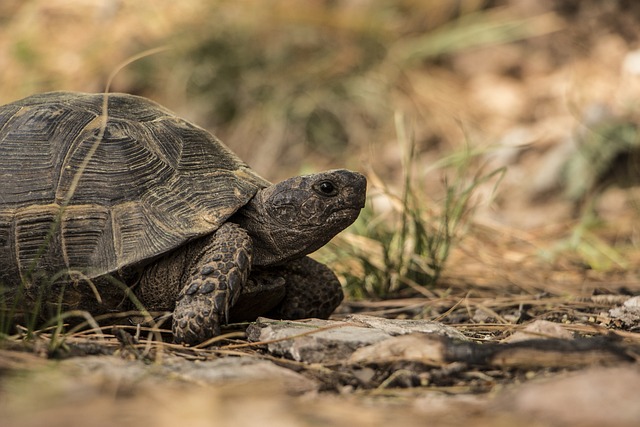If you’re wondering what bugs to feed for your bearded dragon, look no further. Our guide provides the most common insects that bearded dragons should eat daily, occasionally, and bugs that you should never feed your beardie.
Let’s dive in!
Bugs for bearded dragons:
- Bugs for bearded dragons:
- Are freeze dried insects good for bearded dragons?
- Should I feed my baby bearded dragon bugs?
- Potential risks with feeding bugs to your bearded dragon:
- What to do if your bearded dragon eats pesticide covered bugs accidentally?
- Frequently Asked Questions (FAQ): What insects can bearded dragons eat?
- Foods bearded dragons can eat:
- Getting your bearded dragon calcium:
- Vegetables to feed your bearded dragon:
- How often should you feed a bearded dragon?
- What should a bearded dragon not eat?
- Recap: What insects do bearded dragons eat?
Daily: Best Insects for bearded dragons
These are the best insects to feed bearded dragons daily, and provide a great deal of protein, calcium, and vitamins. They make great feeder insects for your bearded dragon.
Occasionally: What bugs can bearded dragons eat?
These are the best insects for bearded dragons to eat occasionally, either as a special treat or if you run out of their normal feeder insects. They should be eaten on occasion because they have a high proportion of phosphorus OR they could be hard for them to digest.
- Ants (non poisonous species like black ants and carpenter ants)
- Spiders
- Bees (if they accidentally eat them they will be fine)
- Beetles (their shells are too hard and could be a choking hazard)
- Stink bugs
- Flies
Never feed these insects to your bearded dragon:
The below insects should never be eaten by bearded dragons. They will likely be toxic for them and will seriously injure them.
- Any bug that glows, especially fireflies
- Lightning bugs
- Poisonous ants like red ants
- Ladybugs
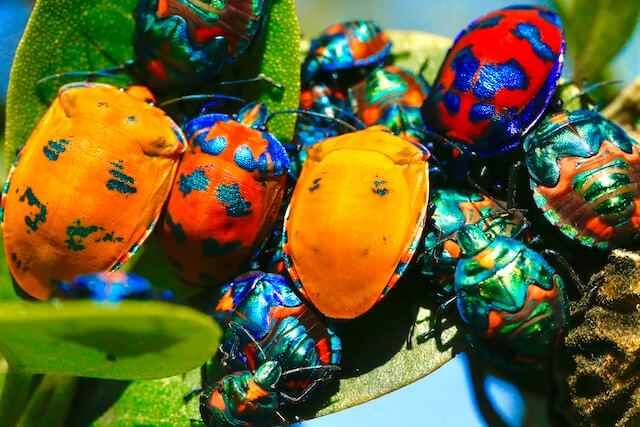
Are freeze dried insects good for bearded dragons?
Freeze dried insects are fine to feed bearded dragons, but live insects are always best. When bugs die, they begin losing water. That water is what holds the vitamins and nutrients in their body. Frozen and dead insects have less nutrients than live ones, but they’re better than nothing.
Should I feed my baby bearded dragon bugs?
Yes! It’s great for baby bearded dragons to eat insects. In fact, they need roaches and other insects like crickets so that they can grow properly into adult bearded dragons. Insects for bearded dragons are like milk for humans, they need it to grow strong and for proper bone health.
Try to give growing beardie smaller insects if possible, as larger ones might pose a choking hazard for them.
Potential risks with feeding bugs to your bearded dragon:
If you give your bearded dragon an insect you find outside, there’s always a chance it’s covered in insecticide or pesticide. When your dragon ingests this pesticide, it could poison them and cause them serious harm and distress. That’s why store bought or home raised insects are safest.
As well, large bugs can pose choking hazards if they’re too big for the bearded dragon. Try to feed them insects no bigger than the size of the space between their eyes.
What to do if your bearded dragon eats pesticide covered bugs accidentally?
Don’t panic. Immediately stop your bearded dragon from eating the bug, and closely monitor them closely for symptoms of a strong reaction. This reaction could include:
- Bloating
- Diarrhea
- Vomiting
- Spitting up
- Abnormal behaviors
Give them lots of water to flush out the chemicals as well as a warm bath to calm them down and to encourage a bowel movement. If the reaction worsens or you’re noticing anything out of the ordinary, call a vet immediately.
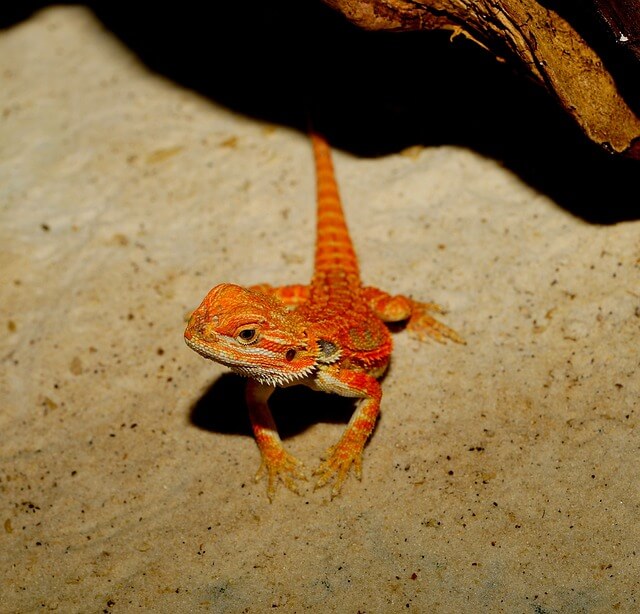
Frequently Asked Questions (FAQ): What insects can bearded dragons eat?
Do bearded dragons prefer crickets or roaches?
Bearded dragons likely prefer roaches, because they taste delicious to them. As well, roaches are more nutritious for them than crickets.
How many roaches can a bearded dragon eat in a day?
Adult dragons should eat about three times a day with between four to five roaches per servings. Young and growing bearded dragons should eat about five times a day, with between five to ten roaches per serving.
How do you keep insects for bearded dragons?
You can get a container and put your insects in a warm, dark location in your home or outside. Give them food and water, and in this way, you’ll have an endless source of live insects for your bearded dragon. As well, you’ll be sure that these insects don’t have pesticides or chemicals on them.
Why are Dubia roaches so expensive?
Dubia roaches grow slowly. Most insects take 1-3 months to mature, but Dubia roaches take 6-8 months to fully mature.
How long do Dubia roaches live?
Dubia roaches live for one to two years, after they reach maturity.
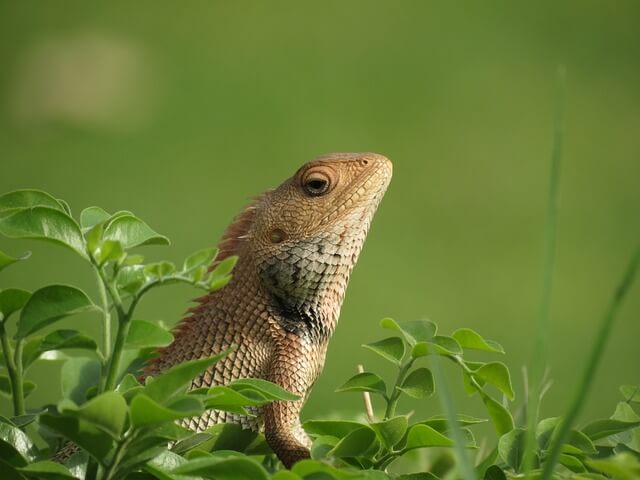
Foods bearded dragons can eat:
If you’re wondering what you should feed a bearded dragon, read our guidelines below. Bearded dragons are insectivores, which just means they thrive on insects as well as plant materials.
If you have a juvenile bearded dragon (between six and eighteen months old), give them about 80% vegetables and 20% live insects.
As your bearded dragon transitions into adulthood, give them the inverse, so 20% plant materials and 80% insects.
Getting your bearded dragon calcium:
Calcium is especially vital to a bearded dragon, especially a young one that is still growing. There are several ways to introduce more calcium into your beardie’s diet:
- Add in more high calcium vegetables like dandelions, bok choy, and collard greens.
- Dust calcium powder over their insects and vegetables to increase calcium levels.
- Make sure they’re getting their 12 hours of UVB exposure as they need this light to be able to properly absorb nutrients.
Vegetables to feed your bearded dragon:
- Peas
- Dandelion
- Green beans
- Cabbage
- Zucchini
- Pumpkin
- See our full list of vegetables to feed your bearded dragon
Note: Bearded dragons can also eat fruit in moderation. See here for a complete list of fruits bearded dragons can eat.
How often should you feed a bearded dragon?
During the first 3-6 months of your beardie’s life, try to feed them four to five times a day by giving them as many insects as they’d like in 10 minutes. They’re growing and need lots of protein during this stage.
Reduce the number of feedings to about two to three times a day when they’re growing into their juvenile years (between six and eighteen months).
As they become an adult, you can feed them once daily.
What should a bearded dragon not eat?
Avoid feeding your bearded dragon:
- Onions
- Leeks
- Chives
- Mushrooms
- Garlic
- Acidic fruit like oranges, lemons
- Rhubarb (can be toxic to them)
- Avocados (surprisingly, these make them ill)
- Eggplant
- Insects caught in the wild (there may be pesticides covering them)
- Venomous insects
- Dairy of any kind
- Rice and grains of any kind
- Frogs or toads
- Ham or other processed meats
Recap: What insects do bearded dragons eat?
- Bearded dragons can eat a daily diet of roaches, crickets, and other insects.
- Some insects should only be eaten occasionally, like spider and flies.
- Meanwhile, some insects should never be eaten, like fireflies and ladybugs.
For our full list of food to feed a bearded dragon, see our guide here.
Related articles:
